What to do in Bordeaux!
I didn’t write this article, but it has nice filters. Check out the link to Europe’s top destination of 2015 and some of the cool stuff it has to offer: gardens, the quai, châteaux, and other nearby attractions.
I didn’t write this article, but it has nice filters. Check out the link to Europe’s top destination of 2015 and some of the cool stuff it has to offer: gardens, the quai, châteaux, and other nearby attractions.

This summer has been a time of place-hopping and life-questioning, which has left my head spinning and my body convulsing with anxiety. As dramatic as that sounds, it is unpleasant lying awake at night, jetlagged, and wondering where you will be in a year when your contract expires again and you cannot renew it. Thinking about my next step from Russia, from Los Angeles, from Paris and from an American summer camp in France, I only stumbled upon more and more questions. One step at a time, I try reminding myself. Just this morning, I was looking through some photos taken earlier this year, searching for one of the luggage I have packed away in Bordeaux, and I found a glut of great memories. Bordeaux truly is a unique city, and I am happy to be going back for another year of teaching middle school booger-pickers.

“Many people are so poor because the only thing they have is money.”
A camping trip doesn’t cost lots, but what it does for the soul is priceless. This month my brother, boyfriend and I got in the car and went to Reyes Peak, California to meet my cousin Emi, her boyfriend Sam and their friends. We borrowed a tent, bought adventure passes (to let us stay in the forest), got gas, and stocked up on food and drinks. Here is the story in photos.
I have been living in California for most of my life, but I am only now appreciating the beauty of the state and all it has to offer. “Anyone who stops learning is old, whether at twenty or eighty. Anyone who keeps learning stays young. The greatest thing in life is to keep your mind young.” – Henry Ford
Stay young. Stay curious.
Love,
Nika

I’ve never made a vlog before, but I’m gonna give it a shot as a means of checking in. This summer I am a bit all over the place. I got in to Russia from Paris yesterday evening and will be here for a few weeks for my cousin’s wedding. I will try to work in France this summer, and will be back in Bordeaux to do TAPIF for another year! Just a quick update. Now let’s see what to do with some Russian squash.

After a series of seemingly unfortunate events caused by excruciating interactions with airline companies, I have concluded this: trains > planes. In short, airlines selling an image of cheap, hassle-free flights have found ways to make money in every way possible. I’ve written about this once.
But I’m not here to be a downer on why this sucks or why that’s bad. Here are 5 ways the French get it right when it comes to travel.
In short, before buying your plane ticket, think about how much time and money you are actually saving. You just can’t arrive at the airport at the last minute and hop on the plane. There are lines, check-ins, airport security, and so on. Then, it usually takes a while to get to the airport. And as I mentioned, the ride between the city center and the airport might cost you more than you expected (around 14 euros in Lyon and a half-hour train ride, for example). Train stations, however, are usually not far off from the center at all.
Epilogue:
No, I am not hating on the TSA, security policies, planes and airline companies (well, maybe a little on the airline companies— those money-suckers). I understand the need for having certain precautions when it comes to travel, especially international travel. And no, I do not hate planes, I actually enjoy being in the air. I wanted just to show my appreciation for trains, that’s all.
-Love,
Nika
P.S. It is spring time, and Bordeaux is blooming beautifully. The birds are ecstatic and so are the people lounging in the gardens. 
And on a very last note, I also got an Instagram. Follow me on my adventure to god knows where. My contract here in France ends in 2 weeks…

Yes I am plunging into the world of squared photos, images of food and coffee, and whatever else Instagram offers. Honestly, I have been hesitant about starting an account (which I think I made once and then deleted) because I already have my blog and a facebook page and such, so what’s the use of remembering yet another password?
The truth is that I love to take photos. They are memory tidbits that I wouldn’t mind sharing with others. I have got nice stuff on my phone, but it would be neat to see at least the good ones on a page, like a scroll-down scrapbook. And by “the good ones” I mean the few where I am not making faces or doing something embarrassing.
So, bonjour Instagram. You can follow me @nikaalikesmaps (And a shout-out to my one follower)
And I will leave you with this old classic that is stuck in my head.
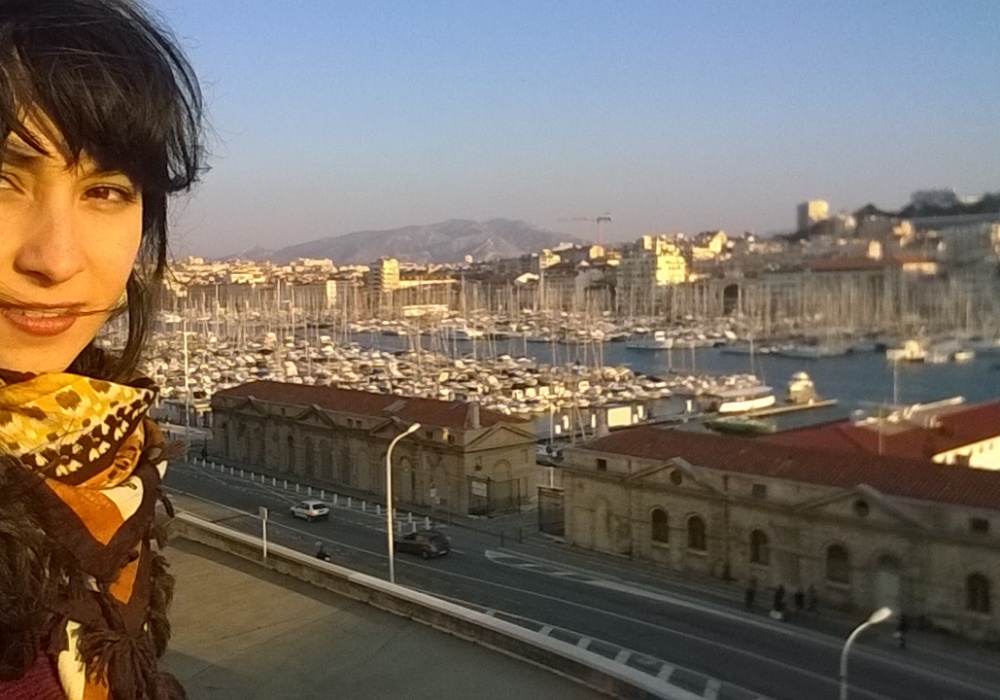
First off. I have heard quite mixed thoughts on this city. I met a Russian girl while studying abroad two years ago who told me that Marseille just wasn’t what she had expected. That she was looking forward to someplace beachy and sunny and pleasant, but that it was dirty and dangerous and disappointing. But I met another girl while studying abroad who told me that Marseille was actually one of her favorite places in all of France. Taking both opinions into account, I still decided to check out it for myself.
My friend and travel buddy Sophia and I hopped on a train from Lyon to Marseille during our February vacation. (There are half-month vacations ever few months in the school in France. Few can complain). Here is our story and maybe a thing or two I would recommend for anyone going to see Marseille. I have to give a big shout-out to Mazen, my housemate’s friend who gave us an unforgettable tour of the city. You’re a great guide and friend!
2. Tea at Teavora In the two nights Sophia and I stayed at Marseille, we went to this tea salon twice. This is how it works: you enter and take off your shoes because you walk on sand! There are no chairs or high tables. You sit on cushions and drink tea. I’m sorry, but it doesn’t get much better for me. The grand selection of tea might give you a hard time narrowing down your pick. The tea is between 3-4.60 euros. You can also order a wrap with chicken, fresh veggies and cheese, or a dessert. The atmosphere is very relaxed, and people just sit and chat. There are candles, mood lighting, tapestries. Often, places that aspire to be fancy exert so much effort into making the front look alluring that they forget to clean their restrooms. But this place is sparkling and even has soft paper napkins –that’s what made me go from liking it to loving it: the bathroom.You might have to make a reservation in advance if it’s before 8pm, but we just came in both times and got a place. It’s also near a tram stop.
(There is the regular bus which takes 25-30 minutes from Place Castellane, and there is the Jet bus, which makes only 3 stops, taking around 15)
While in Marseille, Sophia and I stayed at an Airbnb where a nice young couple hosted us. Upon our arrival, the husband sat down with us (with tea!) and traced on a map the places we should hit up while there, given we only had two and a half days. For those of you who have never used Airbnb, I would highly recommend it. Basically, you go on the site, choose the city you want to visit and then browse a bunch of photos of potential places. You can read all the reviews of the hosts, filter price ranges and search by the parts of the city that interest you. We paid about $45 a night (split over two people!). This is more or less how much you might be paying in a hostel, around $23 per night, but I prefer Airbnb. We had our own private room, a shared bathroom and the coolest balcony in town.

Background
As part of the French legal procedure, language assistants are required to go in for a medical visit within the first three months of their stay in France to officially be legal in the country. A few of my friends who have not gotten their appointments yet might agree that the country is notorious for slow paperwork –or, just lost paperwork. But I gotta say, it’s not always the nightmare it’s made out to be. Or maybe I was lucky. I’d like to think it’s the former.
Paperwork Timeline
I just came out of my medical visit, so I’ll share what to expect.
But first, here’s my timeline of the paperwork:
Early/mid-October: I send in my OFII paperwork.
October 17: I get a letter saying that OFII received my documents.
October 21: I get a second letter from OFII with my appointment date set exactly a month later. I am told what to bring.
November 21: I go in for my appointment.
What to bring for the medical visit.
My second letter said I should have the following things ready for my visit:
1. Passport: this is so they can add the final stamp allowing you to stay in France for the duration of your contract. You get the passport stamp the day of your appointment.
2. A photograph: Une photographie de face, tête nue. I had extra copies of passport photos and used one of those.
3. Copy of proof of housing: This could be the attestation de domicile, quittance de loyer, a utilities bill, or a phone bill. I showed my attestation, and it was enough.
4. A past medical certificate, if available. This is if you have previously had a similar appointment in France. I’ve never had one, and it was not necessary.
5. A stamp, amounting to the total on the letter they previously sent me. I bought three stamps before my appointment, but no one mentioned anything about them at the office. So they were not necessary.
The Procedure
You wait outside the office until they open up. I arrived half an hour early and read The Scarlet Letter on my phone while a line of people began forming. Classy. Once the doors opened, we lined up inside to check- in with the secretary. You tell her you’re an assistant, show her the letter you got from OFII and your passport. Next, you go into a small waiting room with the others. The medical visit procedure has four main steps which could be in any order:
Impressions
Honestly, I did not expect the appointment to go by so fast. There are four medical professionals you visit while there, but each one took around 5-10 minutes. I was also intimidated before going in. But these Bordelaise women were nice and understanding. The woman who took my x-ray demonstrated what to do showing how to breathe in deep for the photo. Also, while waiting, I met some other friendly assistants including some I have seen before. At first, everyone was kind of quiet —you know, like many strangers crammed into a waiting room, but then people started asking questions and more jumped into the conversation. There were about 12 people there or so.
FAQs:
Are the doctors mean?
No they were very sweet and understanding. And quick. I was intimidated for no reason.
Were you naked?
For the x-ray, you take off your bra and shirt. You keep your pants on. The woman is not a creeper. She’s nice and quick. I didn’t feel a bit awkward.
Was it a long wait?
Actually, I think I was the first one to be done. The whole thing, including the four visits and the waiting, took about an hour for me, excluding the early arrival. There were people who were called in after me, but I don’t think they had to wait too long either.
Where was the appointment?
In the center of Bordeaux, if you’re in the Bordeaux region. The bus and tram stops are at Gambetta.
What do I bring?
Your passport, proof of housing, a passport photo. You can also bring the letter they sent you. I brought my glasses and contacts in case. But they made me keep my contacts on for the eye test.
Well, hope this helps. If you’re still waiting for the letters, I sincerely hope they get to you soon.
Love,
Nika
PS: And real quick: the middle-schoolers I am teaching are great, and I enjoy every hour with them. I mean, except when they’re hyper and won’t stop talking. But even then, I still like it. It is then that I give them the stare and they calm down. But I will save my techniques and lesson plan ideas for a later post.

What you’re about to read is an email that I sent out to someone who is interested in teaching in France. I thought it would be useful post it here for anyone else having questions or trying to imagine what it’s like.
I’m sure that you know at least a bit about the program from the TAPIF page on the embassy website. If not, check it out because you can find some useful info in the FAQ’s. When I was applying I also emailed a former Berkeley student who was doing the program and I was more concerned about housing and practical stuff like the application, location, bank account etc. Hope this helps.
How I chose Bordeaux I studied abroad in Bordeaux in Spring 2013, my junior year of college. I chose Bordeaux because I didn’t want to go to a very busy place like Paris. Bordeaux seemed appealing to me based on what I’ve heard from people who studied there before me. So I applied. After a semester, I knew I wanted to go back, so I applied for TAPIF and got placed in Bordeaux as I hoped. The TAPIF website has all the info on the regions and the options.
Living Situation I currently work in two middle schools for a total of 12 hours a week and I have Mondays off. I live in a six-apartment building on campus which is reserved for staff, teachers, and the language assistants. My apartment is pretty huge. 85m2. It has 2 bedrooms and an enormous living room with two beds, which we converted into a room and a living room. I live with my boyfriend and another other language assistants, who teaches Arabic. The rent (including utilities) comes out to around 800€, and divided by three people is not bad at all.
Salary The pay is just under 800€ for the 12 hours a week, which is enough to live off of modestly, unless you are in Paris. Many other assistants take up second part-time jobs like babysitting or tutoring. As an assistant, you are not authorized to work full-time, so above-the-table jobs are usually off the table. I will probably try to tutor English on the side, I hear there are many people who look for help with their English. I’ll get on that pretty soon.
Day-to-Day You asked what it is like day-to-day. I only started work half-way through last week, so I can tell you what that was like. Considering I work right outside my apartment most days, I am pretty content. I only have to bus to my second school once a week. I work Tuesday all day, Wednesday morning, and Thursday and Friday afternoons. I heard (and hear) that there are schools which are disorganized when it comes to assistant paperwork, but luckily I didn’t have to deal with anything like that. I emailed my schools in advance and called to check-in as soon as I got my French phone to set up a meeting with the schools and to create my schedule. In these last few weeks before the real teaching started, I took care of lots of logistic business: ordered the modem, opened up a bank account, went to the assistant orientation, met up with other assistants, housed Air BNB guests for a night, shopped for housing necessities, signed up for reward points at my local supermarket, got a tram pass, created lessons plans, met up with my coworkers, ordered cheap macaroons at McDonalds for their wifi etc.
You asked if my French is improving. Yes, it is. I carry a notebook where I write new words every time I learn something new, even during a movie in the theater. And dealing with bureaucratic stuff, it’s inevitable that you’ll be picking up new vocab. I feel like movies have helped a lot with the slang because they don’t teach you that in the books. And since my boyfriend is French, I learn a lot from him as well.
The Job I teach middle school students: 6eme, 3eme and 4eme. I also have a few euro sections, which are the kids who excel in English and are grouped into an extra hour for English a week. The students are pretty interested, especially the younger ones. They were in awe when I told them I was from Los Angeles and wanted to know if I ever met any celebrities, if I was married, if I had a boyfriend, if I speak French (I am supposed to answer no to that one). For some classes, I have the hour to teach and for others, I have a room where teachers send students for me to work with outside the class. I start that next week so I can tell you more about it later, but at this point I know I have the music room and it has two pianos and I am very happy about it.
Prior Experience You asked if I have experience teaching and if it’s necessary. I have tutored English to native and non-native speakers for a few years. I worked with Japanese students and a family from Guatemala while I was in Berkeley (through YWCA and the Easy Bay Sanctuary; they’re always looking for volunteers). I taught a creative writing decal to college students. Here, however, it’s working with a different age group. All that has helped me but it is not at all necessary. Many assistants have never taught before, but it helps. In the few classes I taught last week, I felt that it was kinda natural. You also asked if you need to have a minimum level of French. No, you don’t. You do, however, have to be able to communicate in order to take care of logistic stuff. Try not to be shy about asking. It’s inevitable that your language will improve after the program.
In the Meantime I would recommend that you watch many movies in French (Netflix was a good friend my senior year of college. And it’s now available in France). I would also google TAPIF blogs to get a sense of other people’s experiences and to explore other regions that seem appealing to you. Allison Lounes was a good resource for me. She is the creator of Paris Unraveled, which is a haven of useful information for those moving to France.
I wish you luck with the application process if you’re decide to apply. I invite you ask any questions you have.
Sincerely,
Nika

I am feeling calm. Maybe it’s because my 10-hour layover was half comprised of me laying in a bed in a rented capsule with a shower and a tv in the airport. Maybe it’s because I am early at my gate, and can hang my purse behind my chair since I’m in the corner overlooking the boarding space. Maybe it’s because there aren’t too many people around me and I don’t feel like I will be mugged. Maybe it’s because I am by the window watching the planes take off and land. Maybe it’s because I am realizing that friends and family are miles away by only a plane ride away. Or maybe it’s because it’s golden hour. The beautiful time of day where everything is basked in orange as the sun sets.
I don’t really know why I am feeling this tranquil given the circumstances:
1) I’ve been to about 8 cities in the last week (most of the time was spent at my family’s house in Russia; getting there is the adventure).
2) I have been traveling since 3:30 am this morning: 2-hour drive to Mineral Waters, a flight to Moscow, that 10-hour layover, and now the last leg of the trip, Paris.
3) Oh yeah, and this: I am moving to France in the next few hours.
Ok, most of my stuff is already in Paris. I was there a week ago, so I don’t have to worry about schlepping the luggage around anymore. But I’m about to move to another country kinda for an indefinite amount of time. I am about to teach English to pre-pubescents. And I’m about to move in with my boyfriend. Why am I calm?
Maybe it’s because I just found out I have an apartment ready in Bordeaux? An apartment which will be given to us by one of my schools. An apartment which will be spacy and cozy and awesome. Maybe it’s because I already know the city streets and transportation system? Maybe it’s because I’m not alone? Maybe because I am finally going back?
Compared to this summer (and this whole last year, at that), I have a few more questions answered, but there is much that will take shape in the next week. So there you have it, the stream of consciousness of a girl moving to France.
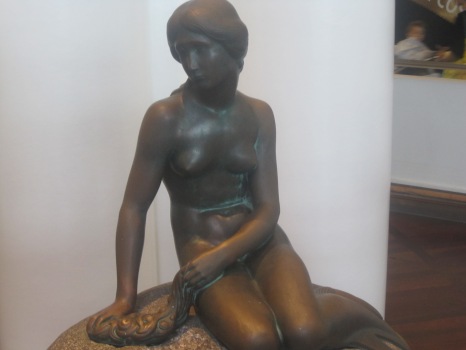
I didn’t get to see the real one (yet), but here is a nice replica of the Little Mermaid statute in Copenhagen (one of the 8 cities of the last week)
More photos and such can be found at my facebook page.
-Love,
Nika

“Don’t worry, I won’t think you’re a creeper.”
This is a post on how I decided to run away to France, again. And how you should “like” my new facebook page.
Backstory
Last year I studied in Bordeaux, France. It was my junior year at UC Berkeley, and it was time for a change of pace. You may have followed me here at Nika Likes Maps where I talked about cultural stuff as I tried to figure my life out. Don’t we all?
So, what’s the deal with TAPIF?
When I got back to the US, I knew I wanted to go back to France. Five months was good, but it was not enough. So I did what any other 20-something-year-old would do. I began to seek answers with The Google. Within a week of being back from Bordeaux, I came across Allison Lounes’s site called Paris Unraveled which is inundated with useful resources for those trying to live in France—anything from apartment hunting to getting a degree there, to life tips. And it’s there that I first heard about TAPIF.
The Basics
TAPIF seemed like a good opportunity to go back to France. You teach English in schools, get paid enough to live off of (no, you’re not going to live in glamour), you work only 12 hours a week, and get 5 weeks of paid vacation. Generally you are responsible for your own rent and transportation.
I was in. I was so in.
So in my last year of college, I prepared myself by tutoring English on the side.
Applying
The application opens up in October, and you have until January to submit your essay, transcript and letter of recommendation. You get to choose three regions, but you may be placed in any one of them. The problem was the wait. I have stalked quite a few bloggers who have done TAPIF in the past, and all were saying that the wait is a pain. You submit your application in January then in April you find out if you’re accepted and in which region (I hear about ½ the applicants get accepted, and that it’s becoming more and more competitive). The regions are large, and you don’t know which city or school you will be working in until well into the summer. So yes, the wait is a pain. But I was still in.
I wanted to go back to Bordeaux, so I chose that region. But it’s a huge one. Finally in July, I found out that I will be working in the city, where I lived before. Woohoo!
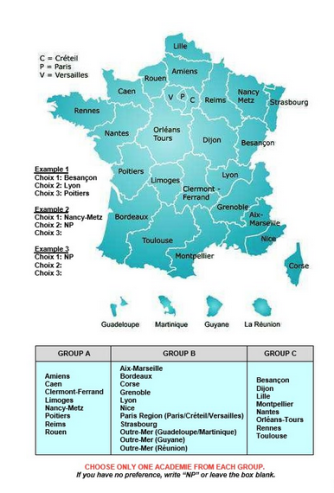
You can only choose one of each of the regions to be placed in. So, for example, you can’t choose Paris and Bordeaux as a choice option.
Documents
While you wait, you should be getting your documents together. You apply for a long-stay working visa specifically for language assistants. You make a visa appointment at the consulate, come in with all the necessary documents and get your passport back with your visa a few weeks later. And of course you’d be saving up money and checking in on plane tickets prices.
You also need to get an apostille for your birth certificate. This is basically proof for the French government that your birth certificate is legitimate. You also need to get that translated into French. In my case, I have to get an apostille for my Azerbaijani birth certificate, and gotta deal with some other annoying guidelines. But for the most part, it should not be an issue. And you get instructions from TAPIF detailing what you should be doing and by when.
So there you have it. A non-intensive overview of the program. As of today, I have my visa and my plane tickets. No apartment yet. I am getting ready to leave in a month and will be sharing all the yummy stuff I can find. In the meantime, I also started a facebook page not to piss people off on my personal facebook. So “like” it if you’re awesome and follow me on a new adventure. Don’t worry, I won’t think you’re a creeper.

When you are away from home, you start asking questions, looking for answers. You see that the world is a little bigger than you thought. The streets change. The sounds around you change. You notice the people are a little different. Maybe they look at you differently. The way they talk is different than you’re used to. Even the way others behave on the tram is different. Maybe you feel uncomfortable. Maybe you feel brave and get on a train to a new city. Maybe you find the courage to ask someone for help. Maybe you’re lost. Or maybe you’re found.
Because going away from home, you learn about you. You learn about you from a new perspective because you’re seeing through a new lens. You learn about you through a new language because you’re speaking a new tongue. You’re breathing in a new culture, picking up mannerisms, discovering that words exist you never knew existed. You’re writing a story on stationary paper with come cool new colors you’ve picked up.

The other day I was looking for my ticket to the City of Lights for September. And I found this:
Norwegian Airlines: $361.
I thought to myself, this is too good to be true. And I was right.
Here is what else I found. In addition to paying the $361, you had to pay $43 for choosing a seat on the plane. Another $43 for a meal. Another $133 for checking in 2 bags. The final price for the ticket would have been around $580. Does that look like the $361 advertised?
I was so furious that I thought, “I’d rather pay more to another airline than be scammed.” Other airline tickets for that day were around $600-700. But then I realized something.
This new airline—Norwegian, allows you to choose whether or not you want to pay that extra money for picking a seat, a meal and checking in bags. Other airlines have the same services which are all included in the price already. So, I took my fury back and I decided to be a cheap-o.
I still chose to check in 2 bags since last year when I was abroad in Bordeaux I often wished for more clothes.
However, by choosing to fly Norwegian, by opting out of picking a seat, and by not choosing $40 plane food, I ultimately saved myself over $200. I ended up paying only $481 bucks for my whole ticket—and that’s with 2 checked bags! Not too bad. I’ll get food once I pass security.
TLDR: you can save money with Norwegian Airlines if you choose to not pay for certain services.
And finally, I just started a new Facebook page where I share anything related to travel.
Every summer, magic happens. If you’re a language teacher, if you’re thinking of becoming one, or if you’re interested in what happens in the profession, you might have heard of these two acronyms: CLTA and ACTFL. Summer camp for teachers? Yes, that exists. For the last 25 years, the California Language Teachers’ Association (CLTA) has held what I like to call just that– camp specifically for teachers of world languages. It is an environment where teachers can exchange ideas, share what works and what doesn’t, listen to research conducted in the field and engage in a network of like-minded individuals who support each other and each other’s battles. Moreover, CLTA, with its generous sponsors and donors, has been able to fund students considering teaching world languages as a profession. These youngsters have the opportunity to attend the getaway made up of workshops and social events. And I can humbly say that I appreciate being one of those students receiving a scholarship to attend. I have spent the last week in University of Santa Barbara where I met educators and organizers who share my interests. First and foremost, I bow down to Lorraine D’Ambruoso the CLTA / CWLP Summer Seminar Co-Convenor and Duarte Silva the Executive Director California World Language Project. This pair is like a king and queen who rule a magical kingdom. Among the many energetic presenters, Paul Sandrock, Executive Director of the American Council of Teaching Foreign Languages (ACTLF) explained the 5C’s of world language education and the idea of backwards planning (a topic for a future post!). Francis Yaiche professor at University of Paris IV/ René Descartes explained how to incorporate commercials, photography and global simulations in a classroom (another topic for a future post!). I poked teachers with some of my favorite questions: how has technology played a role in your classroom? How important are first impressions on the first day of school? How do you intimidate yet inspire students? The week was characterized by friendly faces, heart-warming facilitators and new friends that made the journey fun and funny. The week also consisted of a few long conversations which pushed to realize that this IS the real world. The four years I have spent at UC Berkeley were transformative, and now it’s time to put skills to use and think about a future career. I think this would be an appropriate time to announce to my fellow readers that I will be going back to France to teach English this fall! Yes, yes: another future topic.

While traveling, I have come across some artsy, funny or plain bizarre things. Like a sign eaten by a tree, or a phallic popsicle with crackling candy at the tip. I added them to my gallery over at wix and invite you to check them out. It will be worth your time.
How about you, dear reader. What intriguingly funny, unusual or simply interesting photos did you take at home or abroad? Leave a link in the comments.

Russia is a bit more than speedy dashcam recordings and policemen who let you get away with crime if you pay up. Today I want to share the faces of Russia. And as they say here in the states, a picture is worth a thousand words.
For more photography, check out my gallery at wix.

In school they make us memorize vocab lists, drill grammar exercises, write compositions, maybe answer questions based on a politician’s speech. Maybe they assume that we do our own research outside the classroom, but the truth is, we get so bogged down by what we have to do that we don’t think about other resources available to us. And that can be uninspiring. Whenever people ask me for advice about learning languages, I tell them to get obsessed with blogs and videos. They are little portal’s to people’s lives and include everyday problems, advice and humor. And there are so many of them and almost on any subject imaginable! Besides watching foreign movies like a maniac in the last year, I have been finally subscribing to vloggers, and the stuff they say kinda sorta sticks.
If you are learning French at the moment, I want to share two bloggers you may like. The adorable Gerldine from “Comme une Francaise” covers come useful topics in her weekly videos. These include behaviors that may seem odd to the source or target speakers, how to order coffee in France, embarrassing mistakes, French expressions, and other devourable goodies for learners of the language.
The second vlogger’s videos are in French. He is Youtube’s beloved Cyprien whose videos are fast-paced, silly and funny. They include all sorts of topics, many of them complaining about the perils of everyday all the while poking fun at life and fooling around. Good for picking up some phrases and sneaking in a laugh.
So, don’t forget that there are communities that you can take advantage of. Now go play!
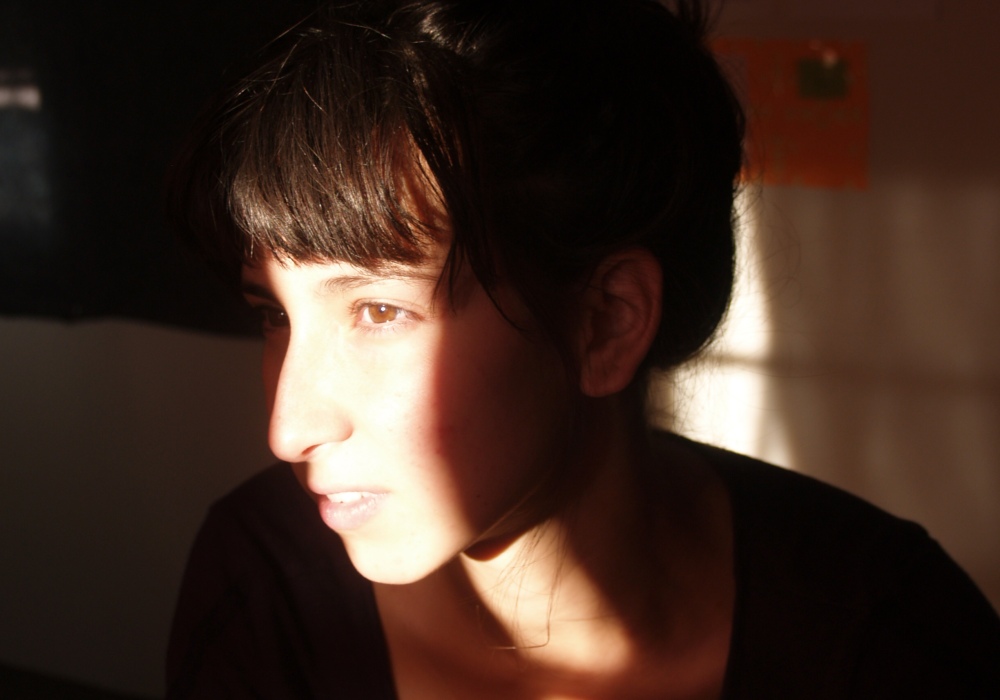
Why is it hard to say “I love you ” in Chinese? People greeting other people by asking which direction they’re headed? Does personality change with language?
I was fortunate enough to have attended this lecture in Berkeley a few years ago. In this video some of my favorite speakers Maxine Hong Kingston (writer!) and Lera Boroditsky (cogsci researcher!) talk about these and other fascinating questions involving languages.
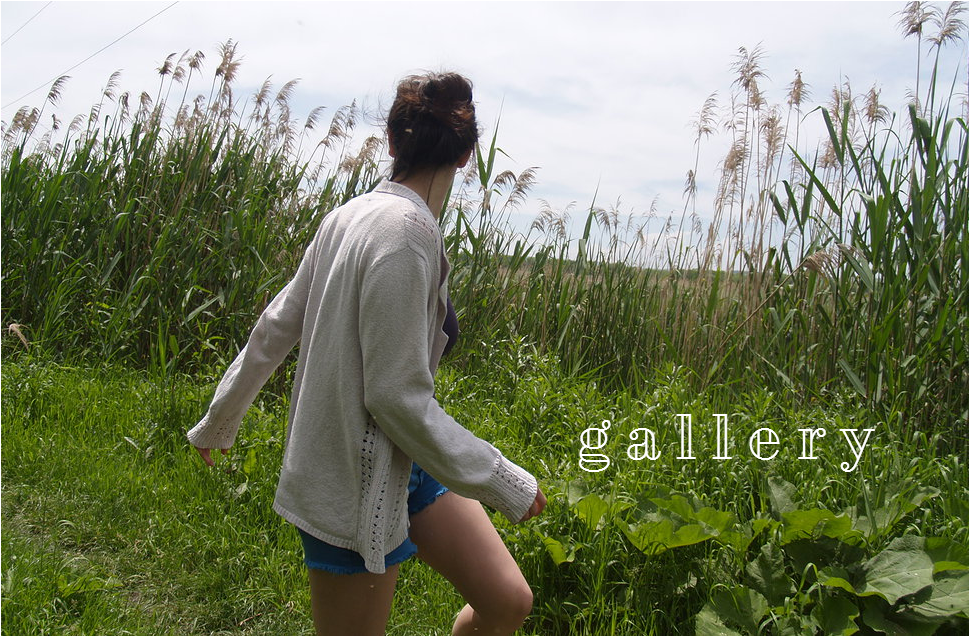
I’m proud to introduce the gallery component to my blog! Here you can find photos from Russia and Europe. You can also take a look at more random artsy stuff I felt was absolutely necessary to share, like a chessboard made up of chocolate and an emergency condom dispenser on one of the longest streets in Europe. I’m also working on some short videos too. So allez! Check it out!


I stumbled upon an Alliance Francaise blog article where Erin Lyons, a French/English/Italian translator and Monterey Institute of International Studies graduate (god bless them!), shares new official developments in the French language.
“Le Petit Robert and Le Petit Larousse, France’s premier dictionaries, gave a sneak peek of the additions to their 2015 editions, scheduled for release this coming June.”
Read about it here.

This woman has short nails with mud underneath. She milks the cow, feeds the chickens and ducks, makes butter and cottage cheese, cultivates the vegetables and hoes the garden. I was standing near my father as Anya explained her daily routine. His jaw dropped as he asked if she really does all this work by herself. She does.
If Anya is a Superwoman according to my father’s standards, many, many people here in southern Russia are as well.
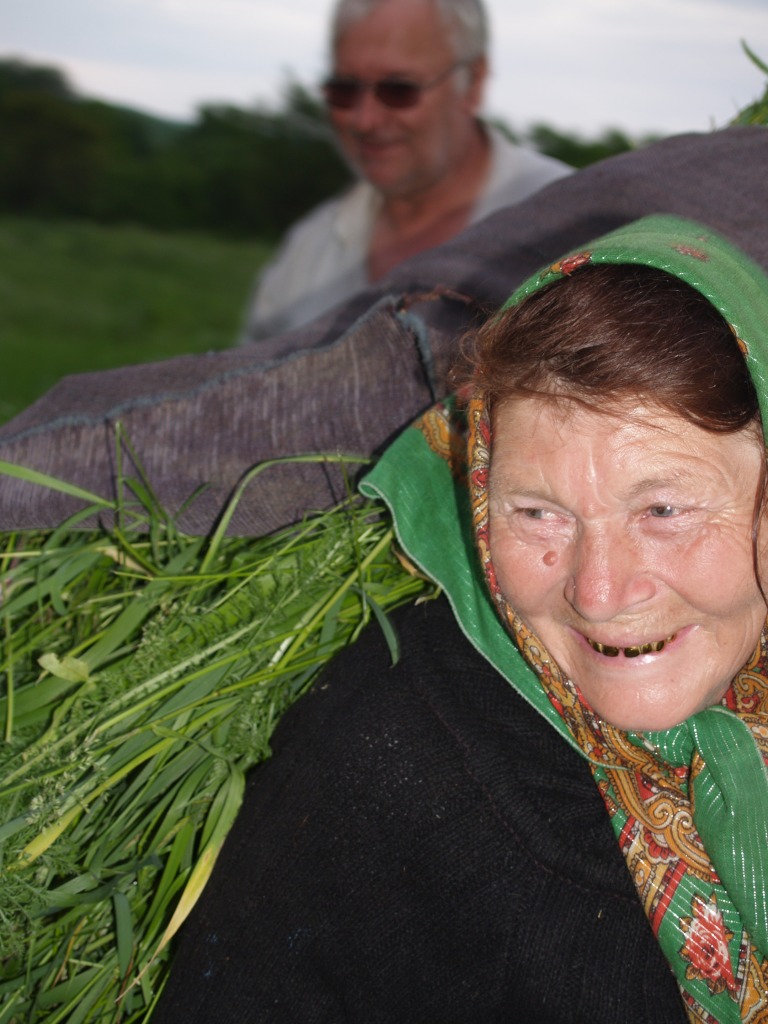



Sometimes a cow won’t let you milk her if you’ve never met her. She will tighten up and release little to no milk.
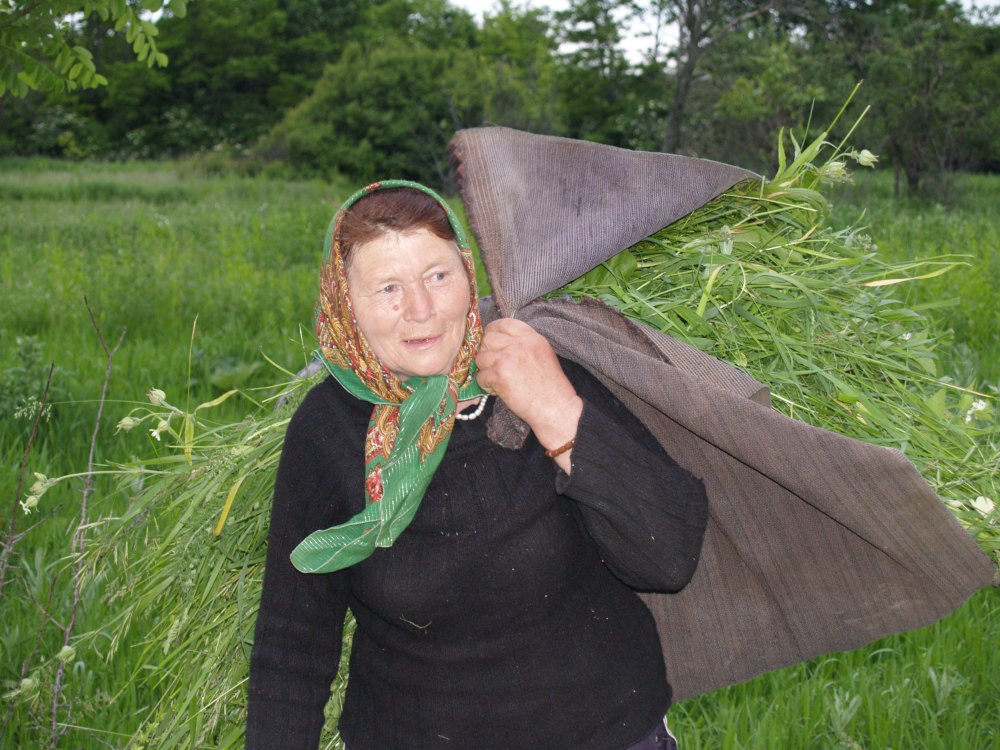
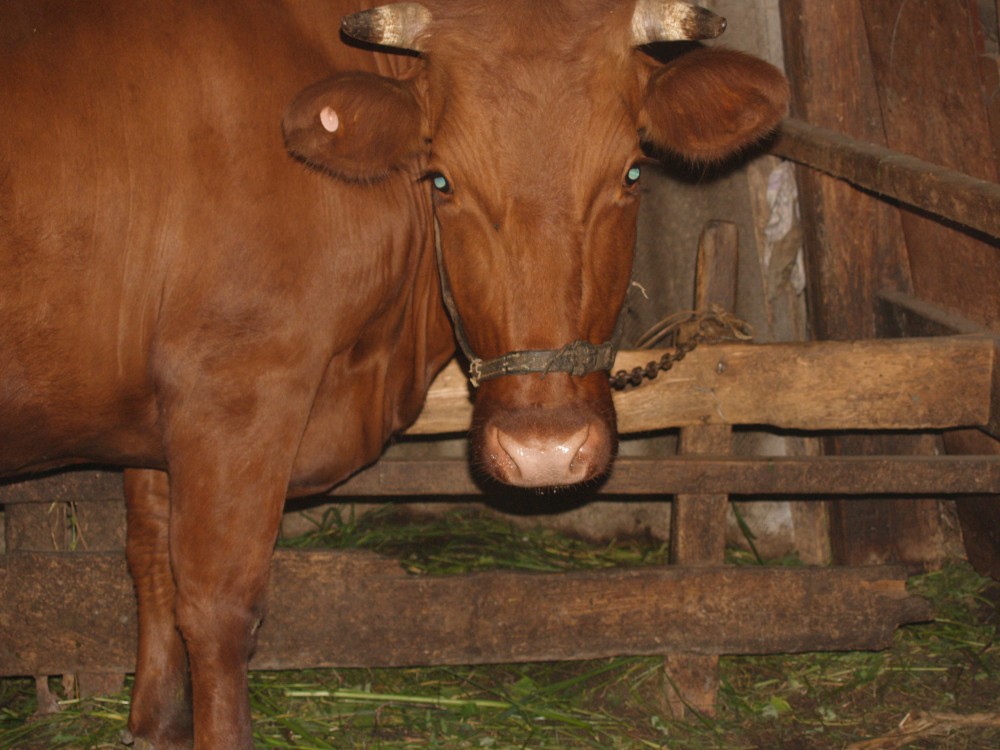
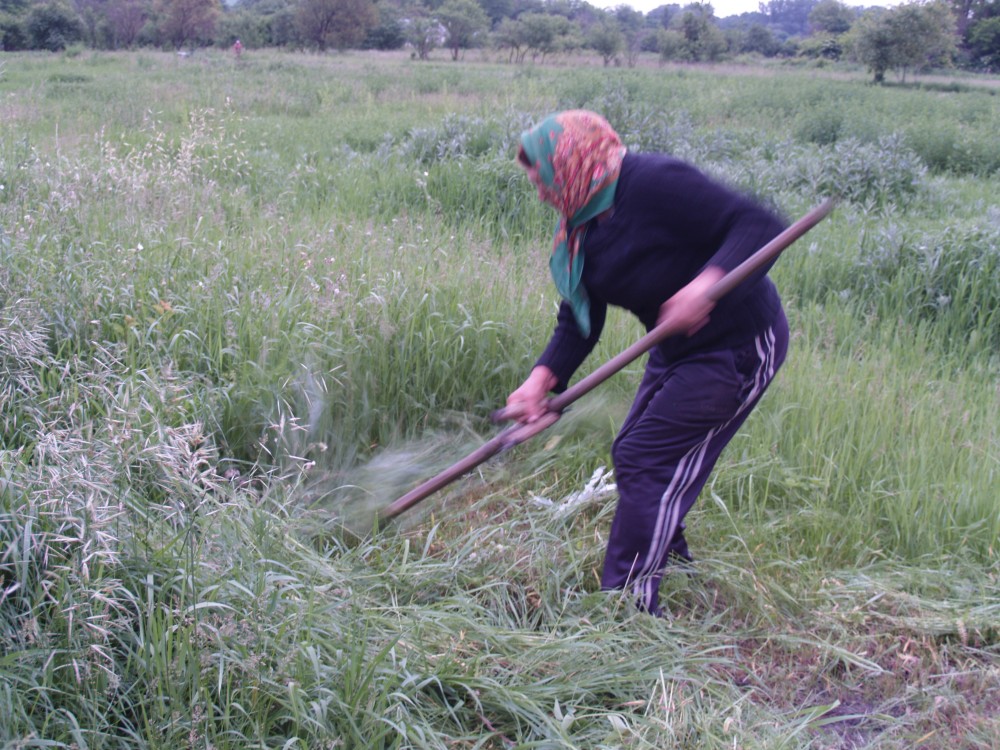



I just wanted to give a quick shoutout to Pink Pangea, a site where women travelers share their experiences advice, photos and everything in between. It’s a beautiful community and a good resource for you explorers.
They have a Facebook page too.
-Nika


Tricky but amusing. Each language has its own expressions. And there might be a word that we use in one context in English that translates to French but has a more widespread use (or just used in different situations). Check out some of the examples below.
There are so many other examples like these. I’ll post more as they come up.
Hello my dear readers,
I say that not writing is never an excuse. Well, I don’t “not write.” In fact, I have been going through journals and journals since my last post. And I have some big news to share. But all I will say at the moment is that I am spending my last weekend in Berkeley for a while. Finals are around the corner, and I am working on a juggernaut of a paper. But after that, I will have much more time to write and such.
Till then,
Nika

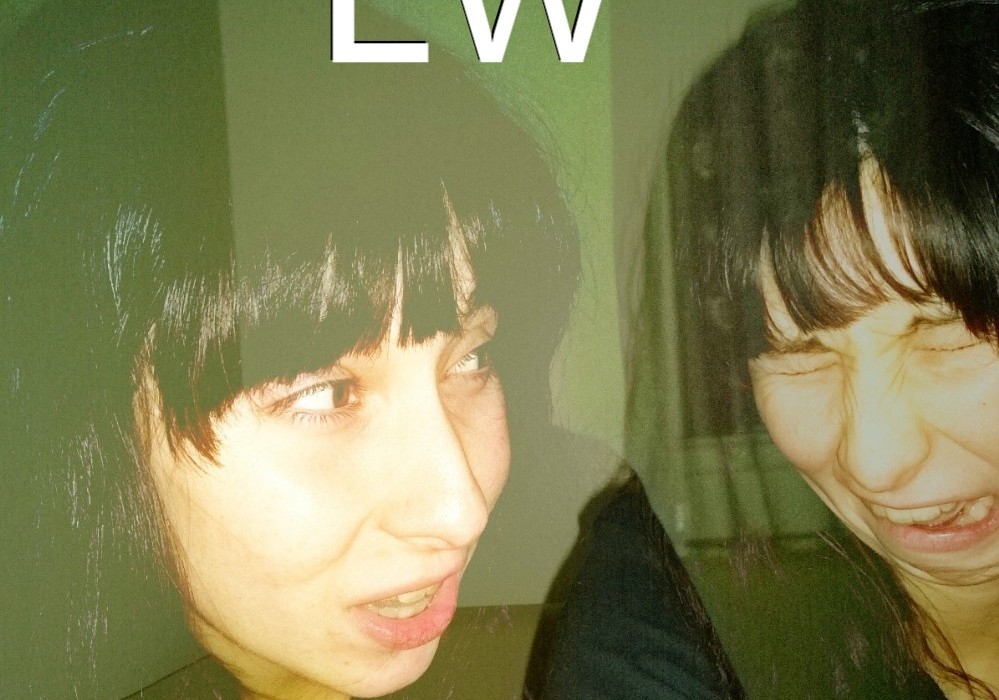
Not only is the article “Let’s Stop Pretending That French is an Important Language” faulty in grammar and punctuation, but it takes on a narrow-minded approach to language-learning. The author, John McWhorter, linguist and political commentator, rants (yes “rants,” not “preaches”) about how he should have learned a useful language in school (Chinese or Spanish) instead of French. According to him, French should by no means be a learning priority for children because of its lack of “use.”

McWhorter is connecting language-learning to usefulness, which in his case, is tantamount to power. He mocks those who can read French literature by saying sarcastically “all the power to them,” while he himself recalls but a few phrases pomme de terre, je m’appelle, and hélas. Has he ever considered that learning a language isn’t just for business transactions? He’s a linguist for crying out loud, and he is discouraging his 2-year-old daughter from learning French because it’s “outdated.”

Paris pendant I made. Deal with it, McWhorter.
It’s hard to respect a man who reasons this way because he fails to recognize the beauty and linguistic/cultural uniqueness of where a language might come from and the people who speak it. The only positive thing we get from learning French, according to McWhorter of course, is occasionally not having to read the subtitles of movies we may occasionally watch.
For me, learning a language is an access card to seeing life through another perspective. And by this grand cliché, I mean everything: formality, food, love, respect, relationship to nature, religions and spiritual beliefs. Taking time and energy to see how someone else views the world is a form of respect for those of the target culture and for yourself. But unfortunately McWhorter doesn’t seem to have respect for the individuals who are interested in languages other than the ones that are currently politically powerful.
I am disappointed that there are people who think this way.

How do you respect someone like that?
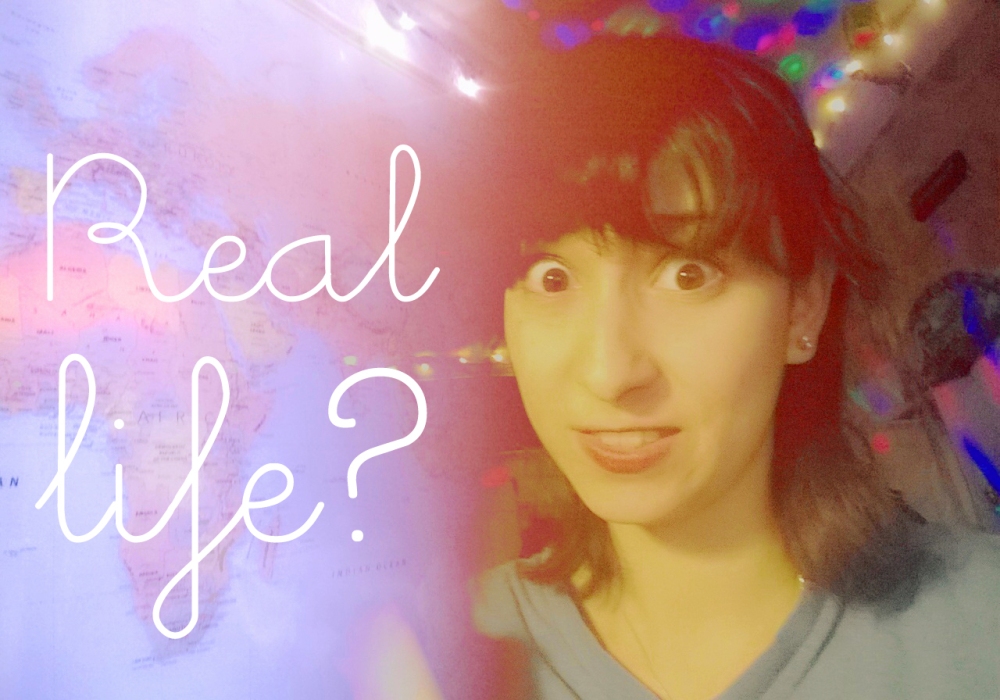
One year ago, I was sitting in my chambre de bonne on the verge of (or maybe in) tears. I was trying to figure out what I will be doing with my life in one year. At the time I was a junior in college and abroad and displaced and confused and free and inspired all at once. And it was my birthday.

The Challenge
That year I turned 21. The fact that I will be graduating in a year hit me and left me in a state of whiplash. Everything at once. That I have goals but am afraid I won’t be adequate enough for the profession I seek. Where do I see myself? Where on earth will I be living? What in the world will I be doing? The quarter-life crisis.
Now a year later, many of the questions I had then are still unanswered. But I am not on the edge of my seat palpitating in anxiety. Well, maybe a little.
Since then, since coming back the US and starting my last year of college, many events have shaped my life in ways that is hard to explain. I’ve met people both in the US and abroad that I am grateful to call my friends. Each of these dear individuals is someone that I just happened to have come across somewhere at some point in my life. I may not see them often, but when I run into them on the way home from work, I yelp and don’t want to part all that quickly. They are the people who encourage your hobbies— you know those things you leave on the backburner—and ask you (really ask you) what’s new in your life since the last time you’ve caught up. They are never jealous of you because they are busy being happy for you.
After coming back from abroad and starting my last year, I’ve prioritize the work I actually like. Last fall, I took three literature classes (two in French and one in Spanish) and yes, I proudly made it out alive. That summer I watched about 50 French movies. I was living in books and film. This semester is a bit different. More technical as I’m trying to give myself the time and space to think about the next big step.

Oh-la-la
What I’m trying to say is that the Big Graduation comes in small steps. I had no idea that I would study French in college, let alone live in another country. Or that I would take a sign language class that would change how I think about language itself (I say this vaguely because that’s a story all in itself). Or any of the other things that could and did happen in four years. Slowly the protective umbrella of university life closes around you. But you’re not left helpless. You can see more now. And you’re left deciding who you want to be around and where you want to go. One thing leads into another, and you find yourself on the path you’ve been paving for yourself all along. Sitting on the edge of the seat was just part of it.
These are the types of things I’ve been thinking about.

Beautiful Berkeley, I am very grateful.

My friend Masha just got to the UK for her year abroad! Follow her adventures here: http://wishmebonvoyage.wordpress.com
Dear Blog,
I hope this is the beginning of an exciting journey and I won’t abandon this project four entries in, like I usually do. I think memories are as important as they are faulty and for this reason records must be kept. Otherwise, all those once exciting stories will fall into the crevices of the human mind. So by starting this blog, I’m hoping I can satisfy some of the wants for my year. I want to remember the upcoming year. I want to take pictures and save them where they won’t be lost. I want to share my year with those willing to share it with me. I want my mom to stop complaining about me never posting any pictures. I want to remember who I am now when I look back on this some odd years in the future.
Let’s just hope it happens.
Love always,
Masha

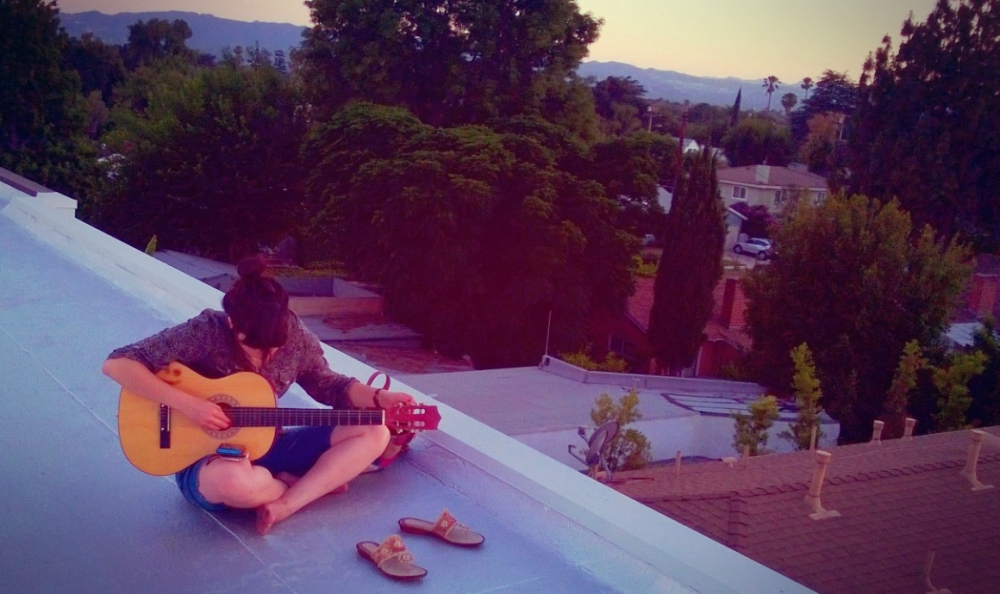
Something is happening.
Look, I’m not an expat. Ok, well in a sense I am because I was born in Baku but immigrated to the United States at five. But I didn’t know what was happening or where I was on a map. All I knew then was that while it’s light in Baku, its dark in this other world, in America. My grandmother explained this to me before we left with a piece of toast. Half was butter signifying daytime in Baku, and half was Nutella, signifying nighttime in America. And on the last day before our Green Card expired, we left for the US. My mom left her pretty scarves because there was no room in the suitcase and my brother lost his toy on the airplane.
As a child growing up in California, I would fight being bilingual. Why could my friends do things that I couldn’t? What was baseball? I saw my first game in the latter part of high school. Then, college? How do you apply? My parents were learning with me for most of the time, and frankly they still are, as am I. It takes a certain person to be able and willing to leave a country (with toddlers) and move to another one where you don’t speak the language and where you don’t have a job.
So, what’s happening to me now?
Now, I want to leave again. After studying in France, all I want to do is go back, see more, live more, and learn the language. So there, I’m not an expat. I’m just curious. Maybe I’m silly. Maybe I’m a dreamer. Maybe I’m all these things. But I know I’m not pure Russian, or pure Azeri, or pure American. And I know I will never be a pure Frenchie either.


Discovering the beauty of North Carolina
Figure Eight Island is about a two-and-a-half hour drive from Chapel hill, North Carolina. It’s located near Wilmington, which is in the southern of the state. Figure Eight is a private island (fancy!) and can only be accessed by a bridge. It’s surrounded by marshland. So from a distance the marshes look like neatly curved patches of green bordering the water.

This is a map of North Carolina. And yeah, you guessed it. The red dot is the island.

Welcome to Figure Eight

Most of the 400+ houses on this island are enormous! Many people rent out their places for months out of the year. Here are a few just a stone’s throw from the ocean.

Here is our place. One of my favorite decorations of the house was a small collection of candles–a man and woman chilling in their bathing suits. And there’s the wick coming out of his chest. Don’t get a burn, mister. If this lounger only knew his fate.
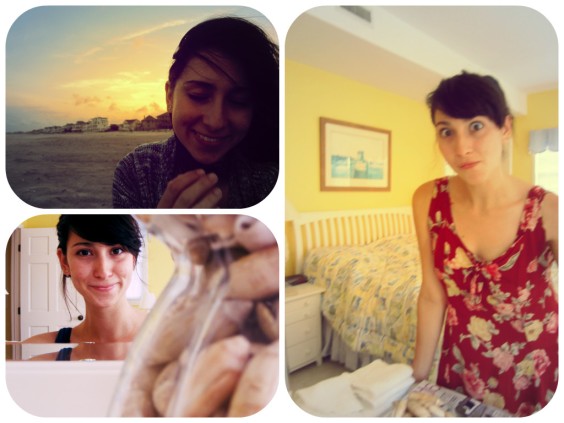
And here’s me, being mostly silly. When I walk along the beach, I have to bring a bag to collect shells. I have a secret skill: shell-finding. But I’ve yet to find a whole conch. I’ve picked up only fragments so far.

Flight of the pelicans. Watch them dive,
Watch them fly.

Apparently, I don’t know what humidity is. Growing up in California, such a thing was never a problem. When my cousin traveled to Florida a few years ago, she told me that humidity was horrible, to put it nicely. Your clothes get soaked and your body and hair are constantly wet.
Well, it’s time for me to find out. A couple days ago, I boarded a plane from San Francisco to North Carolina. It’s not my first time visiting the East Coast, but it is my first time going there in the summer. I’m staying in Chapel Hill for a night and then headed to an island called Figure Eight.

Flying from San Francisco to North Carolina. The flight is a new and direct one, so we don’t have a layover.
According to a reliable source (my fellow traveler and a native Chapel Hillian), the town can be described as “provincial.” There are woods, streams and hike paths. Chapel Hill is around the middle of the state. It’s a college town and is more diverse than other parts of North Carolina. And yes, it is humid.
This humidity was one of two things I noticed on my first night in NC. It was like the air was heavier and harder to breathe. And while sunny California is known for its warm weather, it does get pretty cold at night. But here in NC, you can walk out at night without a jacket. And the second thing I couldn’t stop myself from noticing was the constant hum of crickets and cicadas! It’s pretty soothing, actually.
Well, we’re headed to an island called Figure Eight. See you in the next post!
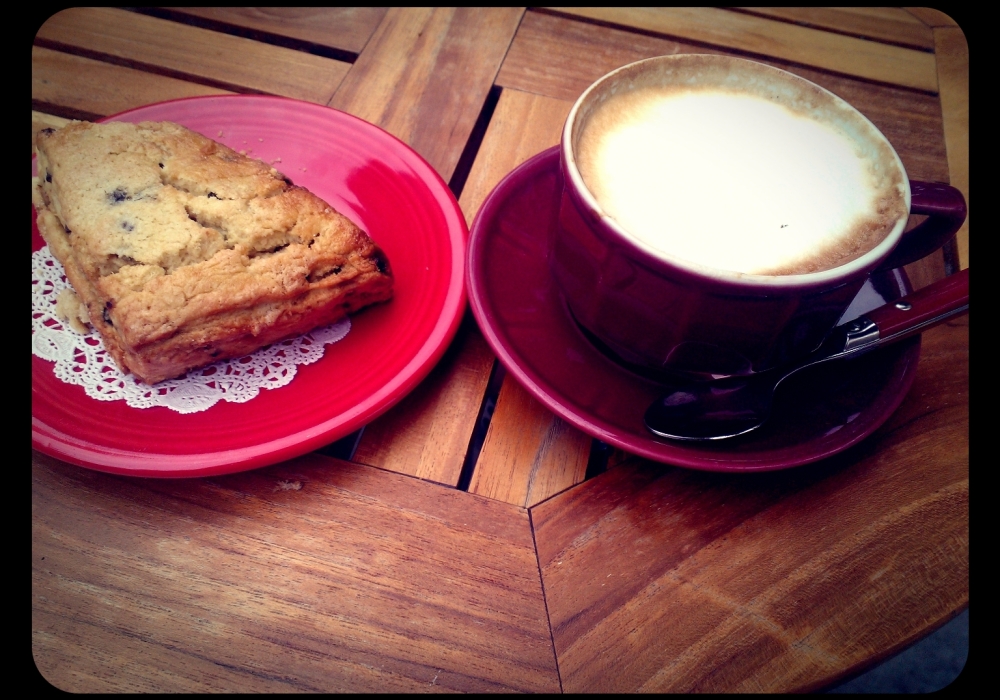
When I was younger, I remember the women in my family occasionally mulling over cookbooks and recipes. But their zeal for food just never made sense to me. I also remember a girl in my 9th grade English class, stating boldly that while some people eat to live, she lives to eat. But again, I just didn’t see the appeal of food. It was just something you put into your body when you heard your stomach make funny noises. It was much later when I started preparing my own meals that I grew to appreciate the energy that goes into preparing a meal and the joy that food brings.
When it comes to food, the most important thing I brought back with me from France was the respect for meals. It’s a time to put everything away and enjoy flavorful goodies. Same goes for coffee breaks at cafes, both in the France and in the US. Cafes are one of my favorite places to pass time away. Give me a book or some wifi and I can spend hours there. Seriously.
Since being back in California, I have been preparing meals I’m actually proud of using fresh ingredients from Trader Joes. I’ve started to expand my knowledge of local cafes here in the Berkeley area. Yesterday, I actually forced myself to get up early and trot over to Cafe Clem, the new Parisian cafe a few blocks away from my place.

When I came to France, the coffee cups were tiny and took some getting used to. Now being back in the US, the relatively huge size is taking some getting used to!
I guess now I understand the mulling over recipes and the bold, “I live to eat” statements. They just bring on joy. Oh, and needless to mention the thousands of blogs with photos that you can spend forever looking at online!
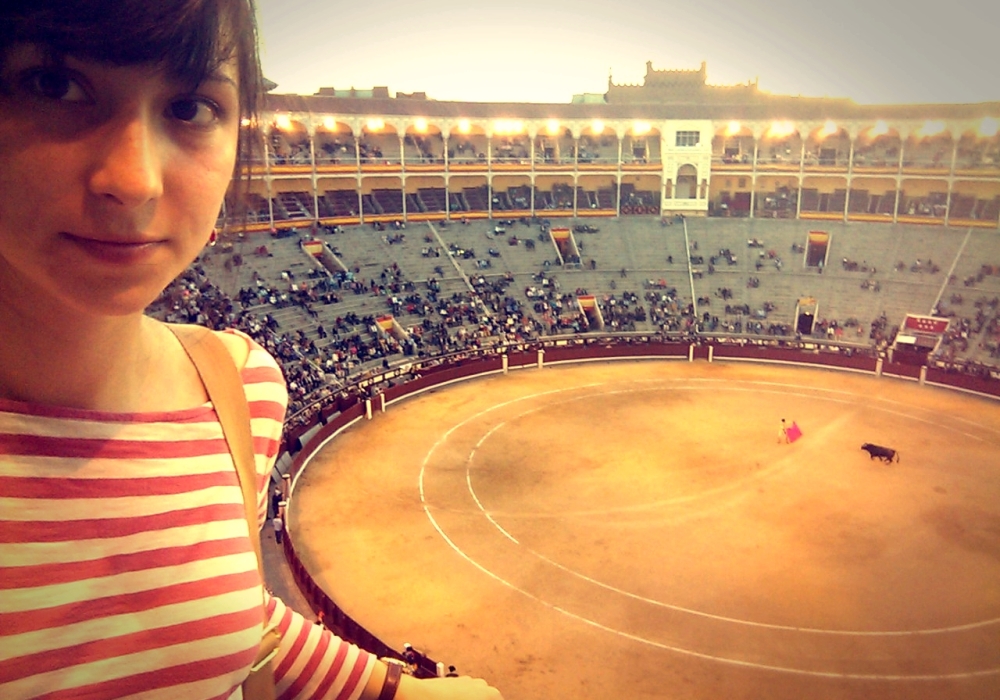
I don’t know why, but I was under the impression that bullflighting was this “thing” where men ran around in a ring waving red fabrics and dodging charging bulls. I was wrong.
So, there is this place in Madrid called Plaza de Toros (toros meaning bulls in Spanish). It is a beautiful arena with arches, pillars, a scarlet-tiled roof, and banners of red and yellow like the Spanish flag. And there are seats upon seats upon seats. People come together to watch matadors take on bulls. Bullfighing is an old Spanish tradition—some would go as far as to say that it’s an art. Men spend years training to receive high scores from judges for performing specific moves. So saying that they run around “waving red things at charging bulls” does cut the surface in explaining the complexity of the tradition. This is something I did not know when my three friends and I entered the arena and climbed up to our cheap 5 euro seats. We soon found out.

Once the matador enters the arena and they let out the bull, and the attacking begins.
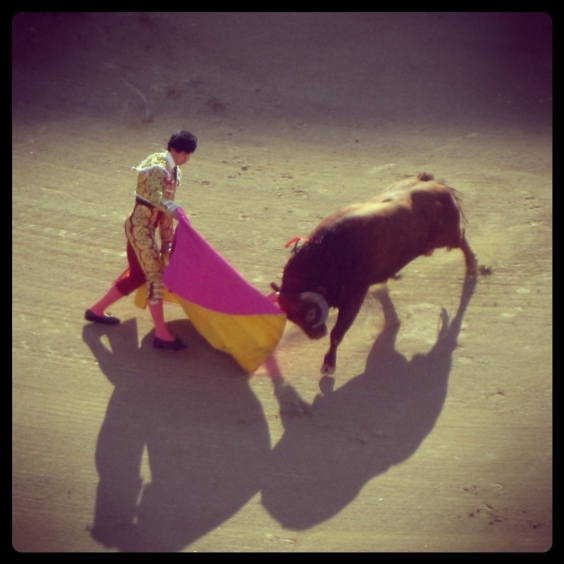
Spikes and spears are then jabbed into the creature. The crowd cheers, beers in hands, and the band plays until the bull is tired of bleeding and topples to the ground. When he no longer moves, men in blue shirts come out and slit the bull to make sure he is dead. They rake up the blood and let out the horses that drag the creature away, leaving a trace of blood in their ceremonial exit.
Now, I’m not saying that Spain should stop this practice. It is, after all, a long-standing tradition that has been part of the Spanish culture for centuries. But I was (unpleasantly) surprised by the reality of what actually goes on in bullfighting.
Thought?
Hello everyone,
I have recently been reading many different blogs about people living, visiting, traveling, and teaching in France. One blogger specifically stood out to me. Her name is Anna. Among topics she beautifully writes about is what it’s like living in another country.
“[…] when you live in a place and your idea of home starts to shift, you find pieces of your identity, pockets of your home and covet it like an irrational gollum creature.”

Bonjour tout le monde. TheFrenchTurtle has kindly nominated me for the Liebster award! Feel free to check out his blog about integrating with the French and preparing to do the TAPIF program.
For those of you who have never heard of the Liebster Award, here is what it consists of, as concisely summarized by TheFrenchTurtle:
So here we go, then.
Part I: 11 facts about me
Part II: 11 questions posed by my nominator
1. Where is the most bizarre place you have ever traveled to?
They don’t call Berkeley “Brezerkeley” for no reason. I have not traveled much of the world, but Berkeley, California sure is a special place. It is known for its driven and often radical students and it’s peace-loving, love-spreading hippies. Homelessness here is a lifestyle choice for quite a few. I feel lucky to have spent my undergraduate years in the Bay Area, and I am happy to have another year left at this place that is “très particulier.”
Today I was on campus enjoying the sun, writing, drinking my tea, watching the people go where they go, and feeding brave squirrels. It was peaceful. All of a sudden, I heard the growing sound of metal music. At the moment I looked up, I saw a tall skater zoom under the Sather Gate on his board. That’s Berkeley in a nutshell.
2. What languages interest you (other than French)?
Oh if I could, I would speak every language on Earth. But, alas, that is not possible. I grew up speaking Russian at home. When we immigrated to the US from Azerbaijan, my brother and I learned English. In high school I began studying Spanish, and in college I fell in love with French. So of course, all of these are interesting to me. I would like to learn Japanese, actually. Or Mandarin. Or Swedish because it sounds cool. Or Arabic, because it looks cool.
3. What is the first thing you notice/look at when you meet someone?
I notice posture. I also notice where people look when you are talking with them. Eyes. I notice eyes.
4. What is your pet peeve?
I am irritated when people stand behind me when I do things. And while I am ok with noise when falling asleep, I cannot stand when people are loud in the morning when I’m trying to sleep. (I must sound horribly mean, but those are pet peeves of mine).
5. Where do you plan to be in five years from now?
Oi! One thing I learned was this cliché: you never know what life will throw at you. Just expect change. Maybe even with open arms because it will force itself upon you.
When I started studying French, I never thought I would be able to go abroad and live in another country. Now I want to go back. In five years, I hope to have traveled more. I hope that by then, I will be fluent in French and Spanish, fluent enough to train to be a simultaneous interpreter. Yeah, that’s where I’d like to be in five years.
6. What is your favorite beverage? (juice, soda, wine, liquor, you name it).
Tea and coffee.
7. What was the most happiest moment in your life?
There are a few happy moments I could think of. One recent happy moment went like this: I decided to go alone on a morning hike. I went up the hills behind campus, about a 15-minute walk from my house. I would go there often, especially in my first year of college because my dorm was at the foot of these hills. Well, this one Saturday, I went up, and found something I had never seen before. Hanging right in front of me, facing all of Berkeley and San Francisco was a swing. A swing! This one event made my day. I swung on it for about an hour listening to Feist and watching the morning turn into day. Now, I don’t know if this is the absolute happiest moment of my entire life, but it did make me pretty darn happy.
8. Do you have a favorite word?
Yes: utopia.
9. Who do you find inspirational?
I’ve always found Regina Spektor and Vanessa Carlton inspirational. They are both singer-songwriters who are well-read, well-spoken, and who are creative thinkers. I’ve listened to them for years. I’ve listened to Vanessa since I was in 7th grade, and in a sense, her songs have shaped parts of my life. There are memories to which I would attribute certain lyrics and melodies. They are inspirational because they made my life pretty.
10. What was the craziest thing you did during your childhood that resulted in a punishment?
Well…this story involves a car, a hammer, a tree and two dumb kids.
My brother and I were about eight and ten, respectively. We lived in an apartment in West Hollywood, where all the other Russians and Slavs lived. There were always kids in our backyard. We would run around, play tag, climb trees and roofs and tease each other. Well, one time, my brother and I saw a hammer in the trunk of one of our neighbor’s cars. I have absolutely no idea why, but we decided to open the car and take out this hammer. Not knowing what to do next, we decided to hack up the bark of a tree as if we were some kind of environmental workers. Yes, ironic, I know. Well, needless to say, we got berated by our parents. I think we had to stand in opposite corners and not go outside for a while.
11. Cat or dog
Dog. Always wanted one. Never had one. And I can’t wait to get one (or two).
Part III: the nominees. Way to go ladies!
Part IV: 11 questions for the nominees
Well, there you have: 11 facts, 11 answers and 11 questions. Thank you, everyone!
Oh and here is one of those brave Berkeley squirrels I mentioned earlier.

I have been challenged to redefine the idea of “home.”
Before moving to college, Los Angeles was always home for me. It was the sunny place where I grew up for most of my life, it was where my friends were, where my family was, it was the place of familiar streets and restaurants and parks. Then I “moved away” to college. I used “moved away” rather than “went away” because the hoard of things that accompanied me up the state was meant for more than just a short stay. After our first year in the dorms, my friends and I moved into an apartment, then into another, a more homey one. We got it repainted, installed shelves with cubbies in the kitchen, and hung up posters and paintings. There was a place for everything, and I just generally liked being at home.
And for me, it did become home. Berkeley became the place where my “things” were—clothes, books, makeup and other goop that I never really used. It was the place where my jobs were, where my college friends were, it was another center with another community around which I had built my life.
Once I was talking to an old friend from Los Angeles, and I said that I’m going back home– meaning back to Berkeley. She didn’t say it at first, but she felt somewhat betrayed. She felt as if I were throwing away everything I had built up here for somewhere else. And I understood where she was coming from. But I needed her to understand that for me, “home” was not this set thing. And you can’t just chuck it away in exchange for something new. So, could you have more than one home? We had this conversation right before I left to France for the semester.
When I arrived in Bordeaux, it was anything but home. It was a new place with a new atmosphere. But with time, it grew on me, and I became part of it, just as it became as part of me. I had my room, my favorite hang-outs, my circle of friends and acquaintances, and I was speaking a new language. Just as in Berkeley, as soon as I started building a community, the place began to feel more like a home.
I guess what I’m getting at here is that it is possible to have more than one home. Los Angeles is home because that’s where my friends and family are. Berkeley is home because that’s where my college memories are. Bordeaux is home because that’s where I learned to be honest with myself.
Home and house are different words. “Home” is more abstract. It can be a feeling, it can be a place, it can be an ambiance. You can even find home in a person. My advice would be don’t tie yourself down too early, but never forget where you come from.

I just read this post and wanted to reblog. It’s simple and powerful. Have a look.
You’re walking down Calle de Alcalá in Madrid with your three friends and a cool traveler guy you met at the hostel. Everything is beautiful, peachy, and even the weather is on your side. Suddenly, the purse that has practically become part of your body from always being on you seems lighter—as if someone is trying to take out the heavy wallet of foreign coins from the last city. You turn around and sure enough, there is someone behind you.
Ok, the “you” is actually me, and here is what happened.
When I turned around, I saw a short, blond woman with a map of the city in her hands right behind me. She held the map over my purse as she superstitiously slipped her slimy hand into my purse!
At first, it did not occur to me that she was a thief. She just looked like a simple woman exploring the city. I made eye-contact with her, saying, “What are you doing?”
She acted as if nothing happened and walked with her three accomplices towards the corner of the intersection. I was still confused, and didn’t understand what happened.
At that moment, I asked my three friends if they were missing anything.
One friend said that her purse was open and that one of gypsy women returned her wallet, claiming that she dropped it—impossible seeing that the purse has closed before with the wallet buried deep down. The accomplice managed to steal a 50 euro bill before she disappeared and before we figured out what really went on.
Long story short, there are people who you would not expect doing things you would not expect at times you would not expect. If that previous sentence screams out “repetition, repetition,” it’s for a reason: always be prepared. These people are experts who roam touristy areas. They know what they’re doing and they know how to disguise themselves and how to behave themselves.
So here are a few trips for you travelers.
1. Be cautious even if you think you won’t be a victim
As we learned, you can’t expect that nothing will happen to you. You can even get pickpocketed in the open air, like I almost did, so watch your back.
2. Be careful in crowds
Be especially careful in crowded places like subways and buses. When people are jam-packed and moving, it’s like double trouble, and you are more susceptible to being robbed without noticing anything.
3. Don’t keep things in your pockets
Girls, don’t keep valuables in your pockets (not your jeans, not your coats) even if there are zippers. I had my phone stolen in a Paris subway (what a cliché!) from a covered coat pocket that was hard to notice and difficult to open because the zippers were janky.
4. Wear your purse across you
In tourist hubs, I do not wear my purse over my shoulder. Maybe it’s not the most stylish way to showcase your travel accessories, but everyone already knows you’re a tourist—locals can spot you out, so just embrace it and be careful.
5. Don’t hang your purse on your chair
When you go out to restaurants and cafés, for example, don’t leave your purse hanging around your chair. People are sneaky and will do what they do to steal. Keep it under the table or on your lap. I know this may sound a bit neurotic but take it from me, things happen. And yet another cliché: better safe than sorry.
Be safe and have fun.

Camden Market is a bustling part of town in London. With over 100,000 visitors every weekend, the streets can be hard to walk because they are so packed. There are open-air booths with vendors selling bracelets, watches, purses, clothes, hand-crafted merchandise, boxes with cats painted on them, candles resembling wine bottles and cheese. There are Indian shops selling incense and hanging stained glass lanterns, pillows, leather wallets, you name it. And of course, there is a food court to satisfy any craving you have with anything from Turkish wraps to Indian curry and Argentinian cubitos de papas.
If you are even in town, I would recommend checking out this busy place.
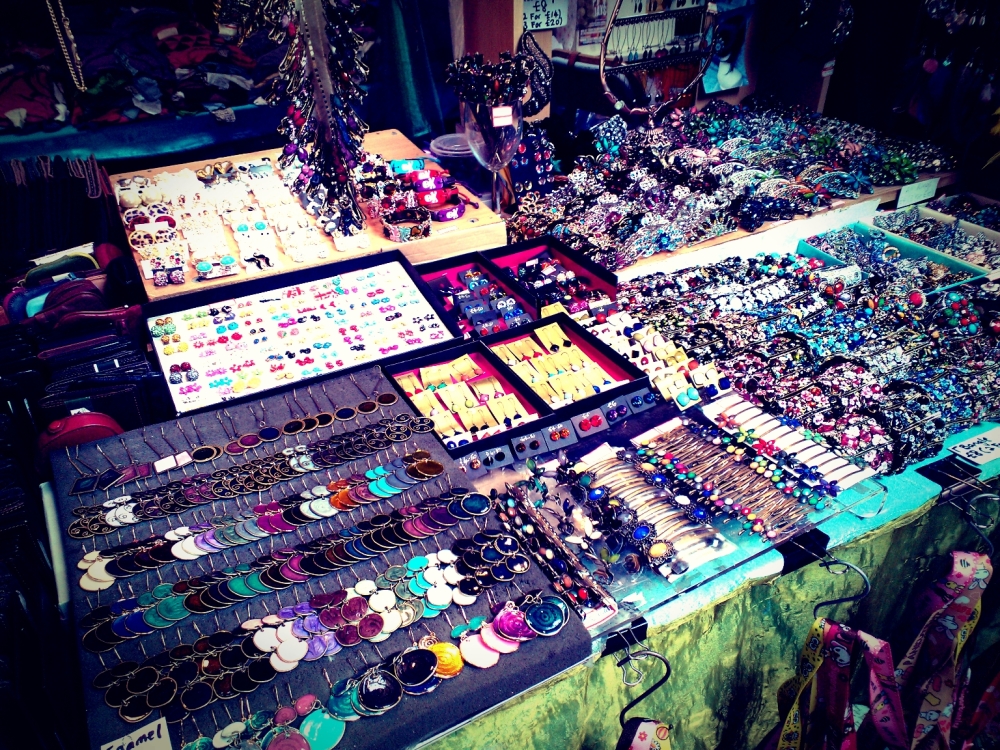
My grandma uses the Russian word “pab-ri-kush-ki” to refer to useless trinkets. I can here her voice right now.
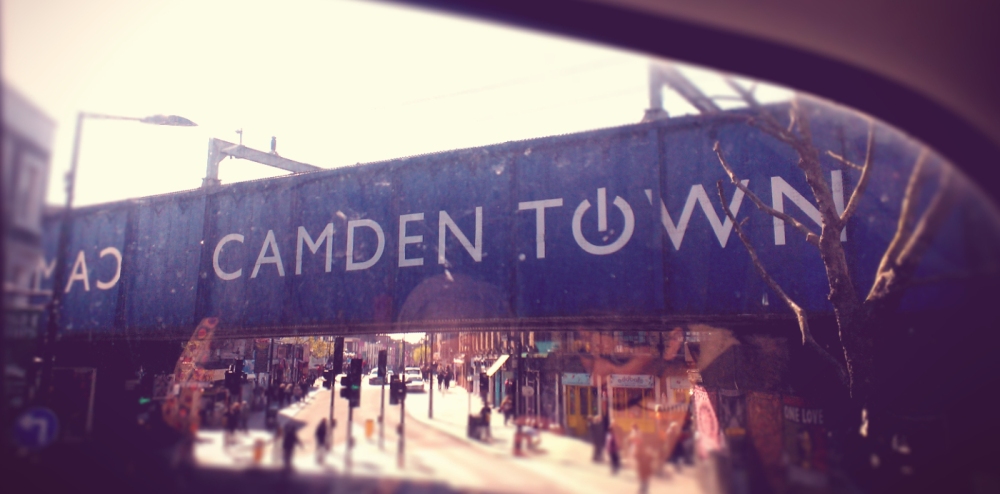
So I keep this little red journal where I write illegible bouts of ideas and thoughts. It’s like a hard drive of impressions made of words rather than a photo taken with a camera. Or, it’s like a memory scrapbook, a place to vomit out thoughts, and a place to collect thoughts through stream of consciousness writing. It’s got dreams, short story ideas, and things I think about on public transportation. Basically, it’s a private thing that no one should really care about.
And then I shared it with a stranger.
A complete stranger.
A guy I met at the campsite outside of Amsterdam who was downing beers with two friends, laughing, sharing stories, and comparing the Dutch and English languages.
It was like uncovering yourself for another person (maybe even literally because it made me feel naked). But there is something especially honest about sharing your own truths with people who are not going to judge you, for people who are curious just for the sake of being curious. His interest in the journal and in the entry felt like a gift to me for writing and sharing.
The other week in Amsterdam, I walked by a middle-aged lady who was playing the accordion in a busy part of the city center. It was an area full of people, tourists, and souvenir shops, right across two tram lines. She was just making music and looked like she was enjoying herself. More importantly, she was willing to share the music with passbyers who may or may not listen. So I stood on the side, away from the stream of people and listened to her. Then I gave her some money, and she smiled back as I walked away.
I think the theme that I am finding here is that it can be rewarding both for you and for others to open up. I had to remind myself of that while traveling in the last few weeks. And my advice for others doing the same is don’t be afraid to share with others, even if it seems like you are putting yourself too “out-there.”
If you write, let a stranger read it. If you play an instrument, let others hear you. I feel like those who don’t want to listen won’t listen, but it just might make someone else’s day.
Speaking of street performers, this post reminded me of a TED talk about a woman street performer who poses (yes, that’s a pun) a question, why is it so hard for us to ask for help? If you’re in the mood, check it out.

I just came across this beautiful post and felt that I needed to reblog it.

When people go traveling, they often try to find fun, hole-in-the-wall places that would not attract a typical tourist crowd. And it is important to explore sides of a place other than the touristic ones.
But I love being around tourists. I like hearing their languages, trying to see what they are pointing to, and looking at the families and couples on vacation. I think tourists are kinda inspiring. So for any of you travelers who feels awkward because you’re a tourist, relax, take your maps out and discover. There is nothing wrong with being in a new place and being confused.

I was in Amsterdam.
It was daytime and I had a few hours to kill on my own before heading to the airport and back to Bordeaux, France. So I decided to see parts of the city that I haven’t explored yet. Somehow, I ended up on one of the Red Light District streets.
For those of you who don’t know, prostitution is legal in Amsterdam. You go to the Red Light District, which is an area of narrow, dark allies full of windows. Then you look into the windows and find—well, you find a suitable prostitute!
So I, along with many other curious tourists (or maybe, lost tourists), was walking down one of these streets. On my right, I saw a young girl about thirteen years old walking with her grandmother. There were explicit photos and women in windows lit by red light, and there was this young girl, just walking next to me, and I felt so awkward!
In the meantime, the girls in the windows, waiting for their next customer, were texting to pass the time away, dressed in almost nothing. Waiting.
I’m still trying to figure out how I feel about the concept of selling your natural goodies from behind a brightly-lit red window. I guess I’m just not really used to it. Thoughts?

Amsterdam. I wore tennis shoes and I was proud.
When I flew into Amsterdam, and I have to be honest, it was most definitely a “culture shock.” But it was a weird culture shock because I came from Bordeaux, France, where I have been living for the last four months, so I was making comparisons between those two cities. There was still a European atmosphere in Amsterdam, probably shaped by its architecture, the narrow roads, trams and buses. So, what happened? For the first time in Europe, I put on some tennis shoes and a backpack, map in hand, and officially looked like a tourist (as opposed to trying to fit in with heels and purse as in France).
One of the initial things I remember thinking was:
This is not Bordeaux.
This is not our tram.
It doesn’t look like our tram, it doesn’t even sound like our tram.
That one thing made me realize that somehow, I am officially attached to Bordeaux.
Speaking of sound, Amsterdam also didn’t have the ubiquitous click-clack of heels, as Bordeaux seems to. Instead of hearing shoes, I heard bike bells as locals tried to squeeze by the tourists who flooded the city on the sunny weekend. The Dutch in Amsterdam love bikes. In fact, there are more bikes in the city than there are people.
800,000 people
1,000,000 bikes!
(according to a cruise I took)
The architecture was a juxtaposition of something miniature but grand. On average, the buildings in Amsterdam are taller than those in Bordeaux, so I couldn’t help feel “small.” But at the same time, they look like something out of a fairy tale. The houses are close together, some are even tilted because of the canals’ effect on the foundation. Yes Amsterdam has canals!
The canals of Amsterdam circle and seem to engulf the city center. My first impression of the map of Amsterdam was literally: what is this place? There were many side streets that could be taken that would add to the adventure of exploring a new place, but walking along the canals was something special in itself. It was full of boats with tourists, and ducks and even swans. The waterways are a unique characteristic of the city. And I would recommend a touristy cruise down the canals.

It might be a quest to get from point A to point B. But a quest is an adventure, and I love adventure.

There are little boats, like here. There are even pricey houseboats on the canals, where people live instead of in apartments.
And coffeeshops? Yeah. Go in, ask for a menu and a grinder. Enjoy. Coffeeshops are another unique thing about Amsterdam. Each one has its own atmosphere, and you just have to figure out what you’re into and what you’re not into. Some had dimmer lights and soft music. Some are more lit with a louder buzz.
Oh, and one more thing. The street names are impossible to pronounce!
There are other things left that I want to share, so look out for some more blog posts coming soon.

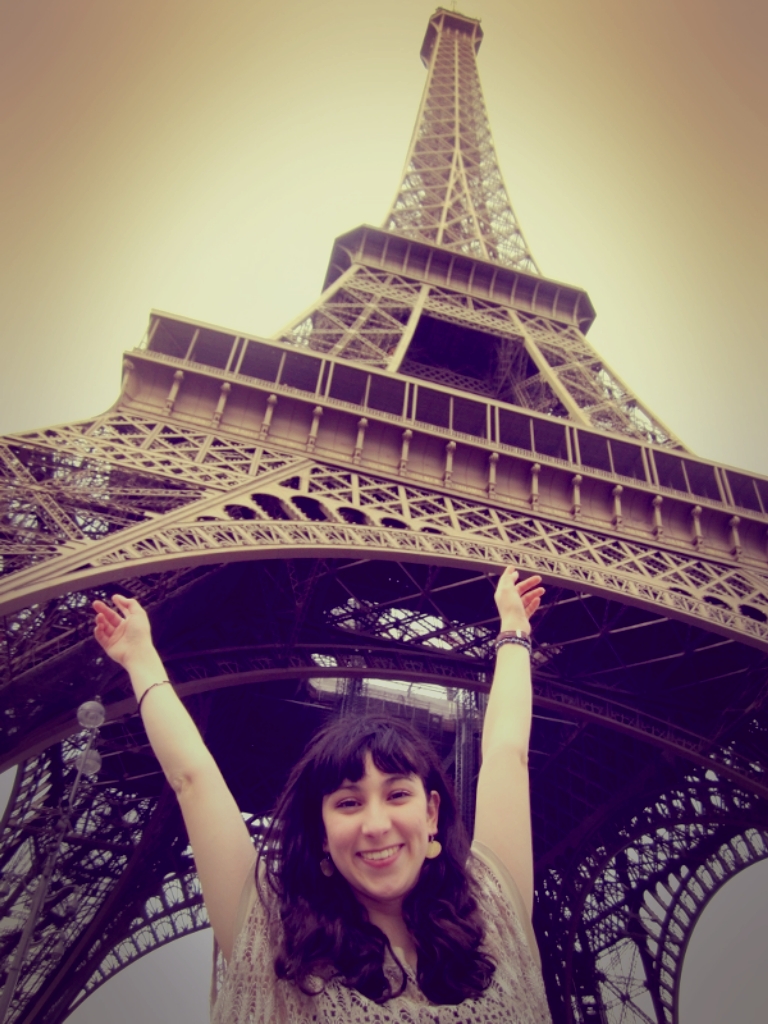 A few weeks ago, I spent a weekend in Paris. There I met up with a friend of friend, Clement, and we talked about the difference in language formality between French and English. When is the informal “you” form used? When is the formal “you” form used?
A few weeks ago, I spent a weekend in Paris. There I met up with a friend of friend, Clement, and we talked about the difference in language formality between French and English. When is the informal “you” form used? When is the formal “you” form used?
Formal = vous
Informal = tu
Seems simple, but even the French aren’t always sure of which one to use. It’s similar to Russian and Spanish, but each language has its own nuances, and I wanted to hear what people had to say. Well, here is what I learned:
Clement works with HP, an American corporation with an office in Paris. Being an American company in France, HP has undergone an interesting cultural phenomenon; employees, who usually use the formal “you” with their bosses, are now being told to use the informal “you” because HP is an American enterprise, and the English language does not differentiate between the two forms!
While this development does not particularly bother Clement, it does upset my French host dad. “Je ne support pas ça,” he says, meaning, “I can’t stand that.” In his opinion, like in the opinions of many others, there needs to be a barrier between formality and informality, between “private” and “public” life. According to him, you are not to use people’s names in the workplace; you are to use their last names, as it has been done for years, and as it “should remain.” He sees “name-calling” (as opposed to last-name-calling) as a product of Americanization. And I can’t completely disagree.
I have seen aspects of US culture pervade France. There are numerous American television programs, for example, and the radio plays American music incessantly. (Pardon the heavy connotation, but the café in which I am currently sitting is playing Rihanna. Again). In fact, there has been so much American music on the radio, that the French government has set a minimum quota for French songs!
Why, if at all, does this matter, and what can we get out of this anecdote? First and foremost, in comparing your culture to the culture of others’ you can consider and reconsider elements of both—perhaps things to which you’ve never given much thought. For me, considering the pervasion of American songs, television and the occasional changes of formality in the French workplace, I see some negative reactions but also the reinforcement of years upon years of culture in a countermovement to preserve older traditions. I think I can say that now I appreciate the juxtaposition from a different standpoint. And I attribute that to the beauty of travel.

We were talking more than lets go to Italy; we were talking dates, plane tickets and hostel reservations.
I sit in front of a map of Europe and find “Bordeaux,” the place that has become familiar to me in the last few months abroad. But as I study the map, I feel that something has changed. City and town names are no longer city and town names. They are places, real places with real people. And so the planning begins.
A few girlfriends and I are in the process of organizing our spring break. The countries I’ve heard of, seen in photographs, read about, and whose airs I’ve wanted to breathe are only a plane ticket and a short ride away. England, Portugal, Spain, and Italy. Will the trip make my bank account cry in agony? Yes. But then I reflect and think to myself, is there any other way I’d want to spend my money?
A while back in high school, I worked in a Santa Monica bakery with a Frenchman names Patrice. He was a stocky, happy man who would hum and bounce around when no one was looking.Well, one day he saw me eating lunch and reading at the same time. Needless to say, I was reprimanded. “Food needs to be enjoyed,” he said. “If you don’t enjoy it, don’t eat at all.” In other words, eating is not a multitasking activity. Food and traveling were of most value to him. At the time I was too preoccupied with prom, finishing high school and going to college to even try to understand the beautiful things he attempted to convey. Now, in retrospect, I empathize with Patrice.
So, here I am sitting, looking at a map of Europe on the brink of choosing how I will be spending three weeks of my life. Only now, the girls and I were talking more than dreams. We were talking more than lets go to Italy; we were talking dates, plane tickets and hostel reservations. We are on a journey for beautiful things, beautiful places to discover, and, of course, good food.
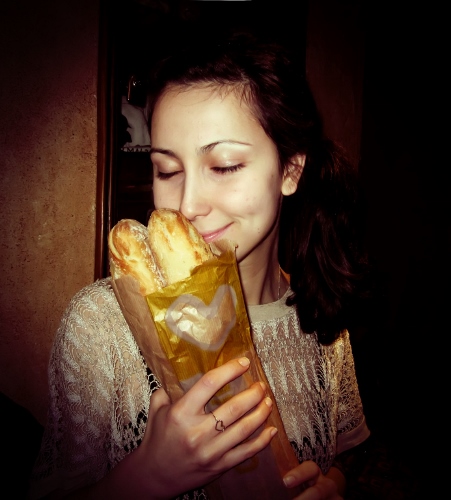
My first month abroad was met with much of my own hesitation when it came to going out of the house. Actually, I do love being out and about—cafes, window shopping, exploring, but speaking another language can be terrifying and embarrassing. Like a few other study abroad students I’ve talked to, I construct a phrase in my head and replay it over and over, but when I have to produce a sound, what comes out it not nearly what I practiced so pathetically.
For example, every day on my way home from the tram, I pick up two baguettes called “flocalines” from the local boulangerie. “Deux flocalines,” I tell myself before saying it out loud. “Deux flocalines.” It really should not be that hard.
Phonetically: [døflokalin]
Realistically: [blablabla]
The lady at the front looks at me. “Deux?” she verifies with two fingers.
“Oui,” I nod.
For a month, I would practice the two words in my head over and over again before I reached the front of the line, psyching myself out. And each time, it was less and less painful. One day, for Madri Gras, when the staff dressed up in costumes, I even had a small conversation. I walked away smiling, warm baguettes in hand.
It’s hard to see progress without some kind of removal. At the moment, I am traveling back to Bordeaux from a weekend trip in a town called Biarritz, twenty minutes north of the Spanish border. While there, a friend and I were relying on GPS and physical maps to get us from our hotel, to the city center and around, as any tourist would. But traveling back from Biarritz, from a town I have never seen before, to Bordeaux, where I’ve lived for over a month now, I feel like I’m going back home, or at least my home here in France. By removing myself from Bordeaux for a weekend, I now see how familiar Bordeaux has become. It gives me hope for discovering more in next four months I have here.
I’m starting to see improvement over dinner conversations as well, and I think this is also due to the “removal-to-see-progress” effect. I live with a host family: parents and two daughters (one who is currently abroad). However, a week ago, a new study abroad student joined our household. She is a sweetheart from Japan who has been learning French for a short period of time, so naturally, conversation is still a challenge. Suddenly, I was no longer the new student at the table. The shift in roles was, in itself, a removal. At this time, I noticed that in comparison to one word answers (my comfortable choice of answer a month ago), I was able to recount stories with more detail. (Don’t go thinking that I’m some French genius. I make silly mistakes constantly, and six-year-olds would laugh if they heard me speak). But until there was a shift in the dynamic, I did not notice myself actually improving.
I wonder if the lady at the boulangerie has been noticing anything different. For her it might mean nothing, but for me, it means the world: to home a voice in a town of foreign sounds and to see progress through removal.

When you enter a small get together and know almost no one, you are “the other.” When everyone is on the same page, and you’re behind, you’re “the other.” When everyone knows the lyrics and you don’t, you’re “the other.” And when you find yourself wandering in a country where everyone but you knows the language and the culture, you are, surely, “the other.” Only in this case, you can’t simply get to know the small party of mutual friends, or read ahead when you have a free minute, or memorize the lyrics. So, now what?
Now you wait. Wait and live and learn. You can’t possibly think you’ll fit in. You’re like an ice cube in a pot of boiling water: same substance but from different environments. Only humans aren’t as pure as water. We are more complex, and while the ice cube will become one with the boiling water, a foreigner will always have those moments where he or she feels a bit different. Even those who immigrated at a young age might feel displaced at times.
Now, what does this have to do with studying abroad? Study abroad students are the foreigners, they are “the others.” And like any foreigner, when someone feels “out of their comfort zone” (as many people like to call the feeling when recounting their abroad experiences), they are actually doing two things: 1) learning about another culture, and 2) understanding their own culture.
I have recently come to realize that if you grow up in a society, you might not know how rooted in it you really are. Sure, there are certain things you don’t agree with and that you detest, but they are familiar. You may know what is polite, what is unacceptable, and when to say “excuse me.” You know how to exist there. Living in a foreign town, you may see just how rooted you are in your culture. But you realize this through another one. In other words, being “the other” might just help you learn about “the self,” yourself.

How to spot an American in France
I, too, am guilty as charged. But come on, how can you not want to take pictures of all the food in France? (That last rhetorical question is actually foreshadowing something grand…)
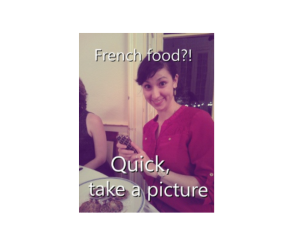

I’ve been noticing random “things” about Bordeaux, and despite trying, I can’t seem to tie everything into a cohesive entry. So instead, here is a list. Follow along as I give you some impressions and tips.
Here is a cool link I stole with flags made of food: http://twistedsifter.com/2011/10/flags-made-from-food/
There is still so much more I want to share. For now, till next time.